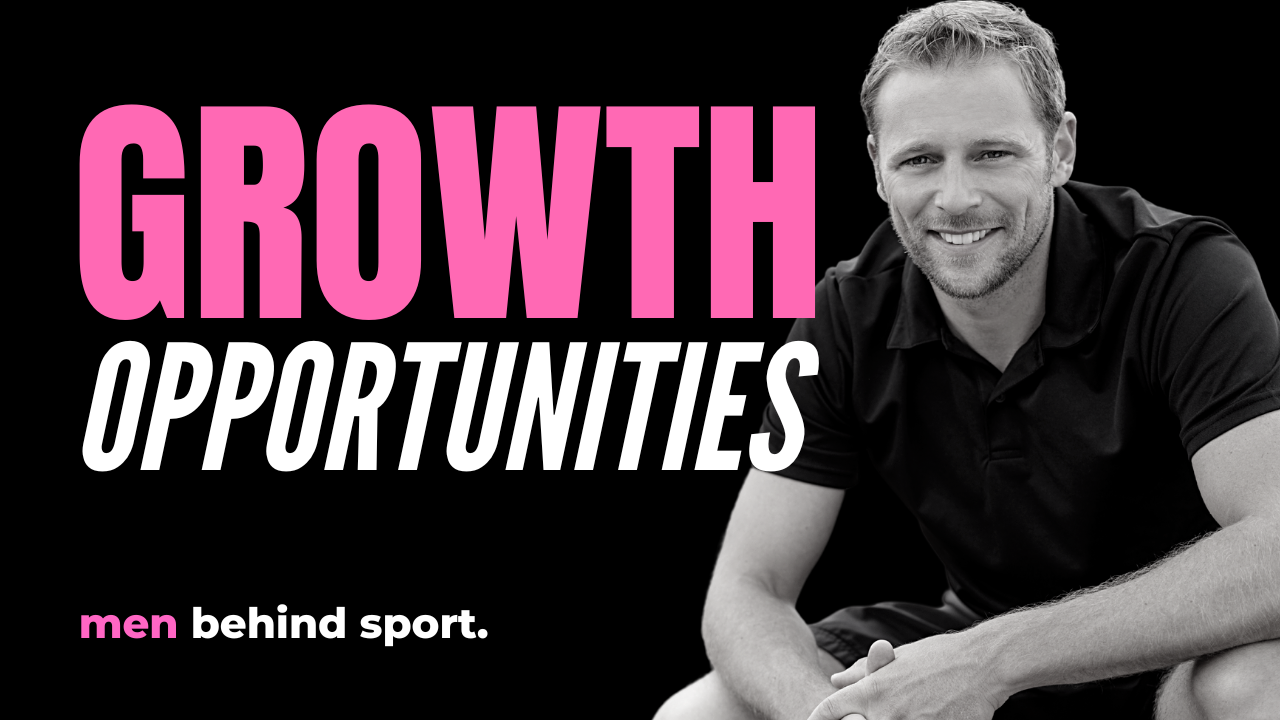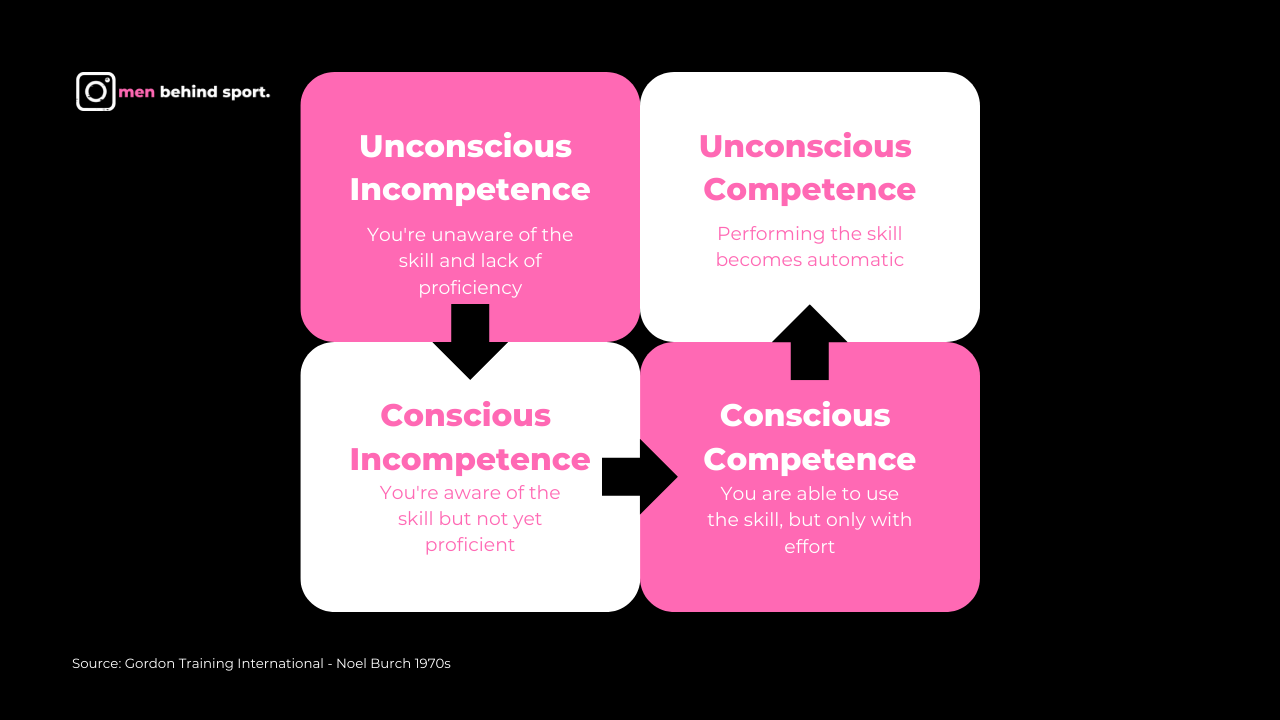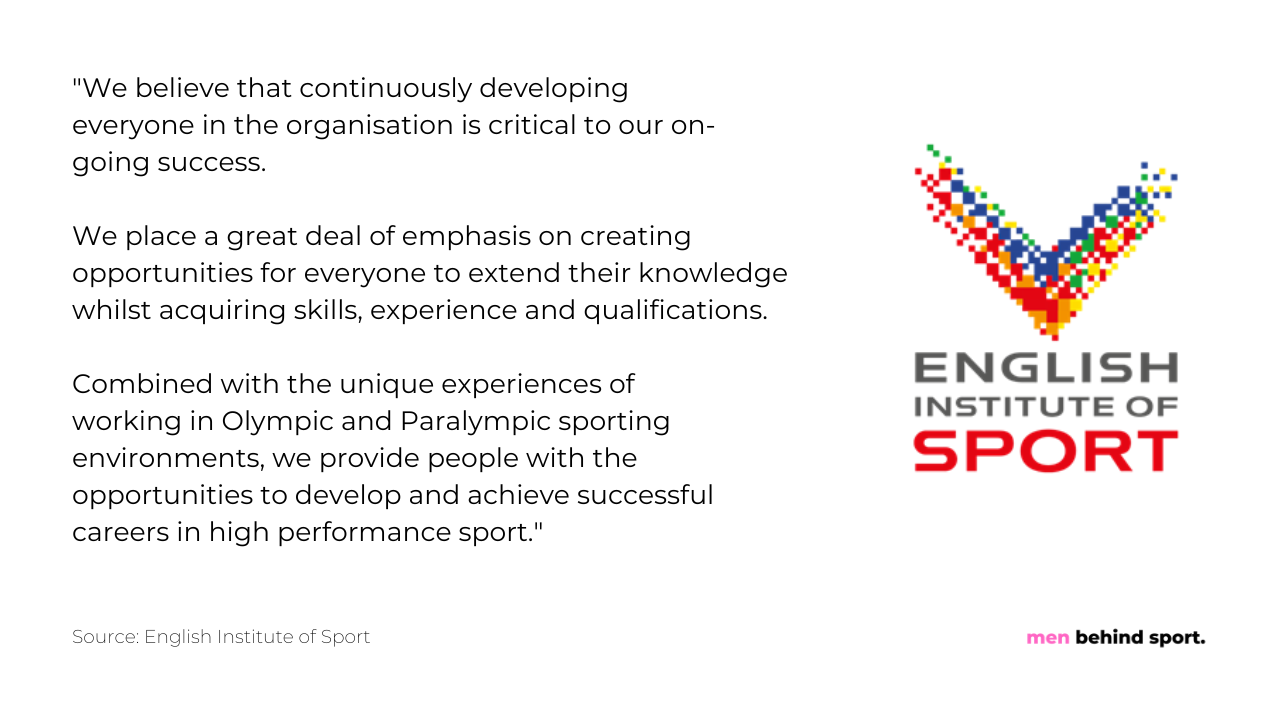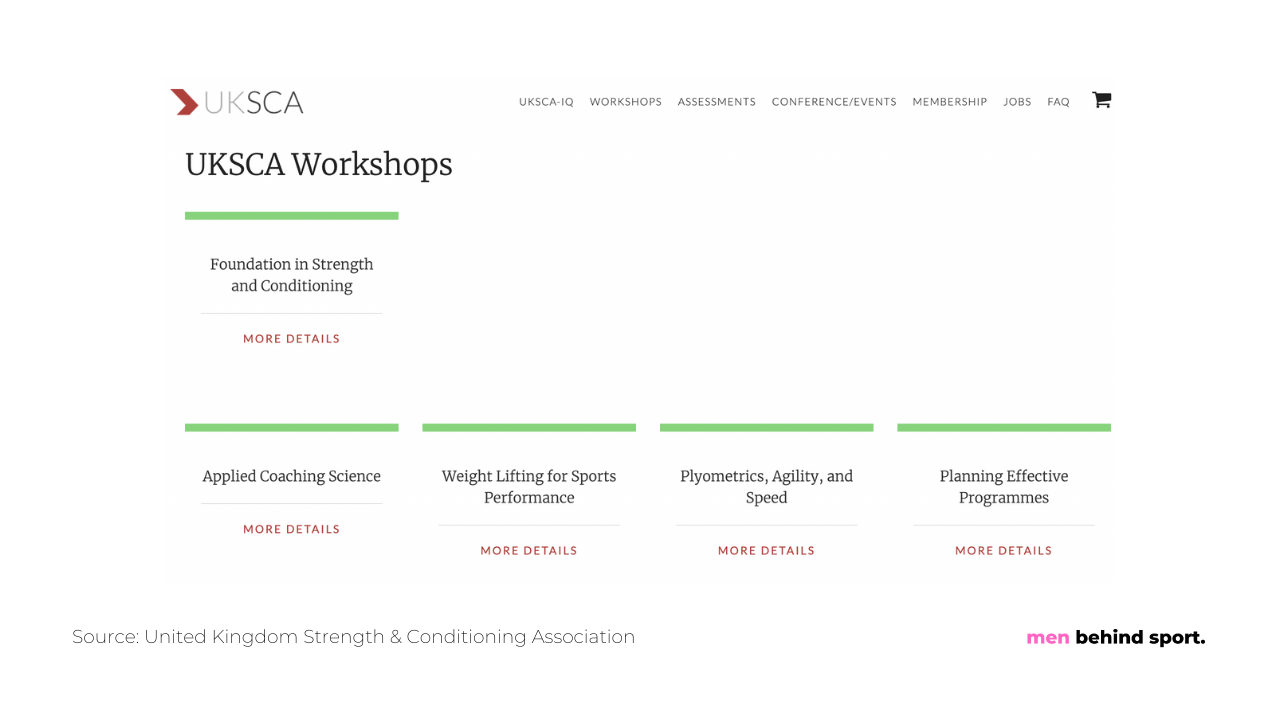
Coach BLIND SPOTS of Continuing Professional Development (CPD)
Nov 16, 2022I'm currently 120 interviews into speaking candidly with performance staff from around the world. This includes physios, SSCs, nutritionists, physiologists, performance directors, head of service and head coaches.
Many of them admit they solely focus their development through technical CPD. They don't know who they are, where they want to go because it's something they've only thought about through the lens of their career, never from the lens of them as a person.
This shows up by focusing on the things that blur their perspective on what's truly important to them. And this was so true for me when I was an SSC coach, I became so lost in my professional world. Without actively seeking to challenge your assumptions, you create huge blind spots in seeing how your thoughts, feelings, and actions influence your life and those that matter around you.
In this video, you're going to learn a detailed look at the blind spots CPD creates with real-life examples. You're going to learn the cost of over-focusing on technical development and you're going to learn how to effectively approach your development through a new lens.
Part 1: CPD Blind Spots
Without question, it takes a huge amount of vision, dedication and skill to get a position in high performance sport. And this creates a huge blind spot. Me personally, I was so caught up in upskilling myself and the latest trends of Bosch or the like that I never gave any thought to developing myself as a human being.
You've probably been introduced to models awareness such as the hierarchy of competence by Noel Birch. This model is a simple model where most of us start in the unconscious incompetence where we're unaware of the skill and our lack of proficiency.

As we progress through and become more aware of our incompetence, to develop our competence and then this becomes are new unconscious way. You can apply that model to most things. Often it's looking at skill acquisition within technical criteria, but you can also direct that on yourself.
And when I first found or discovered this model, I was working at the IS as a strengthening mission coach. When looking at the EIS and somewhere that I loved working and valued it, they say:

Looking a little bit deeper on that, they focus on work life balance and how to achieve work life balance. And they pride themselves in that. It's great, I think it's really great. And I would say that the EIS are one of the leaders in this area where they're really beginning to look at nurture coach wellbeing. But as I said at the beginning, I've spoken to 120 men in sport and some of them do work at institutes like that. And despite these things being in place, they're still struggling with their own personal work life balance and other areas within their development.
When I think of the development now, I think of the whole person. The technical skills as such a small part of what's needed to create an ideal impact. When you look at organizations such as UKSCA, you'll see that there's no focus on the person. It's just technical criteria.

That negative shows up in an example I want to share with you within the English Premier League. I spoke to a member of performance staff who had been in their job for a year. One of their colleagues had booked time off during the day to go with their partner to a prenatal class. Later on that day, he overheard two colleagues discussing that person and questioning their loyalty to the team.
People are so lost in their world, they're completely unaware. I don't think it's malicious, it's just unaware. How do you turn the mirror in on yourself to want to understand yourself, you the man on a deeper level?
Now, to me, that example is quite sad. And it just shows me how performance staff can get lost to the world of performance sport. They may be some of the most technically skilled, yet they lack the personal awareness to realize their thoughts, feelings, and actions are causing incoherent MDT that's most likely not operating as well as it could be.
Someone who I think is doing great work in this space is Brett Bartholomew. Linking to his mission, which leads with poor communication nearly cost him his life. He now helps others navigate the gray area social interaction so they can become more adaptable leaders. This really looks at the human element and sits under the beneath the role of performance staff.
Part 2: The Cost
The cost is massive and echoes with so many of the men I've spoken with. Here are just a couple of examples from conversations I've had in my research:
"I still catch myself trying to demonstrate on Billy Big Bulls and how much I know. I feel like I've reached a crisis point and I've had enough of being a bloke. My wife and I have split up and only now do I see where we've grown apart, which makes me ready to work on myself and make significant changes in my life."
Another example:
"I've been too focused on my career and now I'm paying the price. All of my eggs have been in my professional identity basket. I've never had a personal mentor or coach to support me working on myself. It's all been focused on CPD and being better in my career. I've put myself in this hole because I haven't had the life experience or tools to manage myself."
And lastly:
"I'm really bad at switching off. I overthink things. I'm often neurotic. I get lost in spending my time looking at the technical work in my bubble or performance that I don't spend quality time that I intend to with my family."
Part 3: Effective CPD
What is success to you?
So many are bouncing, stepping stone to stepping stone without awareness of the specifics of what success means to them. And of course, better never stops can be broken down through the lens of which we all know so very well. The labels of world-class, conferences spoken at, number of medals won, I can tell you that it's a costly pursuit.
Another example:
I had a tough time after athletes I supported achieved Olympic success. I felt directionless and aimless in my mind and I thought having an athlete winning gold was the pinnacle of what we do and why we do it. But after they had won, I was waiting for some kind of feeling of achievement to hit and it just never did."
Someone else I want to point you to is Josh Fletcher and Dan House, who are doing great work in this space with regard to professional development. Check out their career blueprint.
What I'm interested in is you as the man behind your role:
- Are you seeking to understand those parts of you that guide your life, whether you like them or not?
- And the first step in this is can you define or articulate your core values.
Values
Lack of clarity of your values creates unclear boundaries, which makes it hard for people to say no because no is perceived as a negative when in fact a no means you're saying yes to something else. And those boundaries and the clarity of boundaries are one of the key areas that I focus on now with people.
Aligned
A second step is once you see your values, are you living aligned to them or is there a discrepancy? Most people I talk to probably can't even describe their values and really the why behind them. But secondly, all of a sudden they see a discrepancy between their core values and how they're actually living their life. Again, the lens of technical criteria is just taking their attention, taking their energy, and leaving these other areas just lost to drift away.
How Do You Show Up?
And the third step to this is to really look at you:
- How do you show up when your partner or child tests you the most?
- What's your response?
- How do you own your part in that?
- And what are you pretending not to know about the situation?
Technical knowledge is useless if you are not being the best version of yourself when you get home. A powerful example of this is from a practitioner that I spoke to and he said:
"The roles didn't allow me to see my kids. My kids always said to me, "Dad, why are you always on your phone?" Even when I'm at home with them, I'm not at home with them. The reason why I went to therapy was that I got too engrossed in my work. So when my partner tried to interact with me or interrupted my thought process, I'd be very aggressive and verbally shout over the simplest of things. My default driver is to do better and be better. And at some point in time, I forgot in that process what I actually like doing."
My daughter is one of my greatest teachers for this very reason. She allows me to see where I've worked to do myself. And to me that means understanding:
- How do I show up on a daily basis?
- Where can I be of my unseen parts?
- How do I hold my center when all things around me are uncertain?
- And how can I stop getting drawn into the unimportant frustrations of life, to open up my heart, to love the people most dearest to me with the presence and clarity to see the bigger picture?
Simply, how does this show up for you? What is the cost of this for you? 'Cause I can tell you, you are not alone.
Let me know. I'd love to hear and just create this discussion and keep this discussion going.



